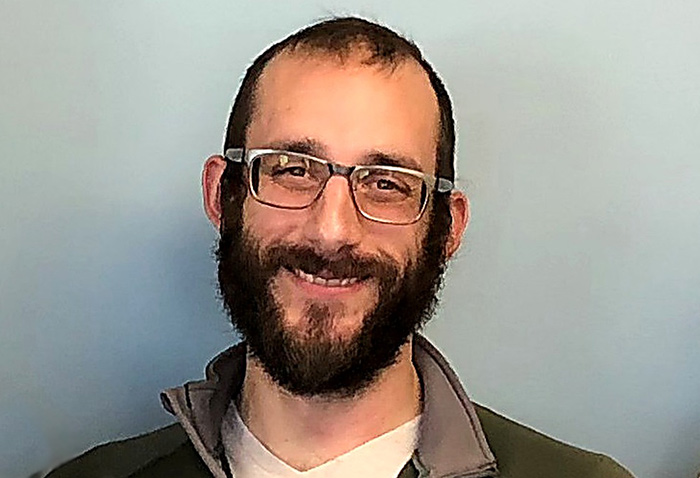Readers comments 5.26.12
Inflated superintendent salary
Dear Editor:
I was surprised when I read the high salary for Claremont’s newly selected superintendent of schools—$218,000—which amounts to more than 3 times the $68,397 that the average teacher in Claremont makes.
Further, in this era of budget cuts and layoffs, where salaries have remained flat for most superintendents and teachers in this state, I was again taken aback by the attached benefit in his employment contract that promises a 3.5 percent raise for each consecutive year of service (based on an annual vote by our local school board).
I did some further investigation and, while Claremont teachers’ salaries run very close to what is our state average, our new superintendent’s salary is considerably higher. California superintendent salaries average at about $159,000 annually.
In 2010, for instance, nearby Chaffey Joint Union High School District’s superintendent made $172,198, substantially less, even though his district is 3 times the size of Claremont Unified School District, with 942 teachers compared to Claremont’s 305.
Early this year, I was heartened when a Claremont school board member acknowledged in the Claremont COURIER that there is a serious crisis in value in California’s public schools—that the quality of education is being compromised by teacher layoffs, bigger classes, programs that have been cut; California is now 50th in the nation in terms of class size, 46th in terms of spending per pupil.
So, I just don’t understand why we continue to vote in pay raises for upper management.
Pamela Nagler
Claremont
Protecting the children
Dear Editor:
In regards to the situation at Sumner Elementary School, I cannot believe a mother would put her children through such a terrible ordeal. My heart goes out to them.
When I was at school, things like this happened and in a couple of days you moved on and forgot about it. Now those poor kids have to go to school every day knowing that everyone knows about them. Talk about cruel and unusual punishment.
In my opinion, School Principal D’Emilio did exactly the right thing. He put the children’s welfare first. He knew how awful it would be for them.
I don’t blame the school board, they were only doing what the lawyers told them to do, and I admire Steven Llanusa for standing up.
The mother should apologize to Principal D’Emilio—and the children—for all the harm she has done and beg the school board to reconsider.
Thelma Banks
Claremont
The emotional fragility of children
Dear Editor:
I want to voice my support for Mr. D’Emilio in the case of the Claremont Unified School District’s unjust and unfair actions against him. I feel that the actions taken by Mr. D’Emilio were entirely appropriate in the case of these very young children—a 7-year-old girl being accused of being a child molester? Except for not reporting to DCFS, most of us would not think of a pre-puberty/pre-adolescent girl as a sexual molester.
Mr. D’Emilio’s response was not “immoral or unprofessional.” His response reflected his understanding of the fragility of the emotions of very young children.
I knew Mr. D’Emilio when he was the kindergarten teacher for my granddaughter at Sycamore School. I took her to his class every morning and sat in the back of the room with several of the parents. He was an excellent teacher, all while creating a very pleasant classroom atmosphere.
One irate mother should not control the school board’s actions and decisions to the detriment of Claremont’s future students.
I am a retired teacher.
Virginia Lindsey
Glendora
Well done, Mr. Pixley
Dear Editor:
Your article “Who is our neighbor?” was well done, John Pixley. [COURRIER, Saturday,?May 5].
Let me say it has been a pleasure to note the growing excellence of your writing over the years. Although I haven’t known you well, I remember knowing your entire family when we were part of the congregation that met for Mass at McAlister Center in the mid 1970s.
I never fail to read your column and always appreciate your ideas.
This article revisited the question Jesus raised a few years earlier: Who, in this wide world, should we consider our neighbor? Your wise insights were well stated and I hope caused/enabled many people to become aware of how tribal our loyalties and narrow our comfort zones usually are. And, like Jesus, you pointed out the fact that the task is ours to become neighbors to others, to reach out, to embrace others.
I did note one group you failed to mention, John, that I think needs to be recognized. It is a population all-too-frequently regarded as legitimate throw-aways, people generally regarded as not worth our thought or compassion: the people who populate our prison system.
In my local paper, I recently read someone’s complaint about allowing inmates to learn job skills, someone who complained that they were paid (pennies per hour) to learn a skill so they could become contributing members of society after completing their term in prison.
The author said this was taking jobs away from “decent” people. No thought that these people are in prison for political reasons, who offer no threat to our national or local safety; no thought that these are sons and fathers, sisters and mothers of people in our community. We brand them, throw them away, and many would like to throw away the key as well, no matter how minor or imagined the crime. We willingly incarcerate millions of Americans rather than face the ills and evils of society that (in very many cases) push or seduce people into illegal activities.
And we continue to use prison as a legal form of racial prejudice.
We have a society that allows an epidemic of child abuse, sends into our homes a non-stop barrage of violence and lust for power as entertainment and as the image of manliness, offers few attractive alternative models at the home-, street- and neighborhood-levels for what children can aspire to, and then we insist that our children are obligated to choose and follow life patterns many never have seen.
A quote from Thomas More’s Utopia comes to mind: “…If we suffer our people to be ill-educated, and their manners to be corrupted from their infancy, and then punish them for the crimes to which their first education disposed them, what else is to be concluded from this but that we first make thieves and then punish them?”
Anyway, that’s my addendum to your well-written article, John. Keep writing; you bring insight and wisdom to your community.
Genevieve Beenen
Sheboygan, Wisconsin
[Editor’s note: The following letters were received after the publication of the story on the investigator’s report. —KD]
Multiple factors
Dear Editor:
The heartfelt public support for Frank D’Emilio expressed at last week’s school board meeting, and in letters to the COURIER and on Facebook, indicates profound disagreement between our elected school board and our community. What accounts for this extreme disconnection?
It is possible that the board has pertinent information that has not been shared with the community, but that seems unlikely at this point. Other factors provide more plausible explanations.
A macro-factor affecting all school districts is the mass hysteria sweeping the country regarding student safety issues. The emotions underlying this hysteria are entirely understandable. Many kids have been hurt. No one is more concerned about this than teachers and principals.
However, top-down solutions devised to address the problem can be inflexible and destructive. “Zero tolerance” policies applied too broadly often result in zero common sense. It appears that Frank D’Emilio and Sumner School are victims of constricted thinking.
A micro-factor of significance in this situation is the administrative style of our current superintendent, Dr. Gloria Johnston. She has many positive attributes, including intensity of focus, decisiveness and forcefulness. These are desirable traits in a superintendent, and most of our school board members have been enamored of Dr. Johnston since she arrived in Claremont. However, intensity and power do not guarantee wisdom.
A third factor involved in our crisis is the creeping ascension of lawyers in the operation of school districts. In an increasingly litigious society this corrosive and expensive influence is nearly unavoidable.
School districts need lawyers for protection from other lawyers, but legal advice is only one piece of the education puzzle, and it is not always devoid of the lawyers’ professional self-interest.
In the end, school board members have to make difficult decisions. Most of the time it is probably best for school boards to follow the advice of their highly paid superintendents and lawyers, but not always! There are exceptions, when heart and soul and community values are involved. If there weren’t exceptions we wouldn’t have much need for school boards, other than to hire competent superintendents and lawyers.
The Frank D’Emilio case illustrates why communities need school boards capable of independent thinking and courageous decisions, when the “experts” miss something important.
It is not easy for school board members, or anyone, to change their minds about major public decisions, but this community strongly believes that the school board should not dispose of Frank D’Emilio. Are we completely wrong about that? We hope the board will reconsider its verdict. Or have we finally devolved to the point where a lifelong educator of superior quality must be booted out of our school district, and out of his livelihood, due to a momentary disagreement with district administration, and admitted errors and missteps along the way?
Is that really who we are now?
Dave Nemer
Claremont
An outsider’s insights
Dear Editor:
As a visitor to your town, I feel a bit intrusive in commenting on your community’s problems. However, as an educator for more than 30 years (secondary teacher, college professor, student teacher supervisor) I was horrified to read in the COURIER about the decision that your school district has made regarding the termination of Principal Frank D’Emilio. I feel that I must speak up.
Anyone who has taught as long as I have has encountered a wide range of administrators, many of them, I am sad to say, weak, and a few of them destructive. Teachers speak with reverence and gratitude of the fair and supportive administrators they have worked with.
Were I in charge of hiring an administrator, I would want to know a few things about his or her philosophy and past performance to ensure the best possible future for my school district.
1. How sacred is student wellbeing and success to this candidate?
Given the past accolades granted to Mr. D’Emilio, I’m betting he’d score very well on this count. In addition, he seems to have gotten into trouble for trying to protect 2 very small, innocent girls from an incident in which no one was harmed. His fatal errors stemmed from a desire to keep the matter private and contained so that the students would not be forever followed by gossip.
In contrast, the board flunks. The matter is now a public scandal. Thinking the pseudonym “Student 28” provides any useful anonymity for the girl is a delusion. From experience, I know that many, many people have already figured out who Student 28 is. This one incident will follow the child and mark her through the rest of her schooling. One hopes this will make her strong and more compassionate than the adults who’ve now taken charge of her future.
2. Does the candidate back up the staff, or throw them onto the bonfire the first time there is a parental complaint?
Teaching is stressful even under the best of conditions. Where the teachers are at the mercy of parents, there can be no good morale, and no courage in teaching. Without talking to teachers at the school, I can’t know this principal’s record on support of teachers, but Sumner’s designation as a California Distinguished School suggests he built a confident and creative team.
In contrast, I suspect the disproportionate action of the board was in response to parental pressure. The term “witch hunt” comes to mind.
The board’s draconian punishments are not appropriate for an administrator whose intent was wholly good, to protect 2 children from public notoriety.
Burning at the stake should be reserved for someone who has truly sinned, such as a sexual predator.
Teachers in the district must now question what sort of execution awaits them if they make a small error. Will they be fired for using something in class that affects one parent negatively—even if other parents approved of the materials? (It appears that Mr. D’Emilio has enjoyed great public support during this trial, but to no avail. What hope for the modest classroom teacher then?)
3. Is the candidate a forward thinker, willing to try new things and allow freedom to use different teaching styles and materials?
The easiest, safest answer for an administrator to say to a teacher who wants to try something new is always no—even before examining the new approach or hearing how it might enhance learning. Such naysaying quickly quashes creativity and progress.
Since the board is definitely taking a play-it-safe stance, this sort of narrow-mindedness may become the future of your district. Whoever is hired to replace Mr. D’Emilio is highly unlikely to win any recognition as an innovator. He or she will live in fear, making only safe decisions or none at all.
If I were the board, I would be working very hard to find a way to keep an administrator who has shown such good will and ability and who has earned so much public support.
If you must, put him in a pillory for a weekend and let whoever wants his scalp throw pies or rotten tomatoes at him. Let the board spit on him as a more honest and direct way of purging their dislike or jealousy of him. Or fine him. Or reduce his pay. If keeping him is no longer possible by any means, accept his resignation.
Simply losing his position is a very severe consequence for telling a lie. The lie itself is layered: It may have stemmed from an inability to communicate successfully with the angry parent and fear that a report to DCFS or the board would bring on the sort of media attention that is now in force.
A lie designed to prevent this sort of disaster is a white lie that does not merit such an all-out attempt to destroy a career. If I were on the board, I would want to know in much more detail why someone who was otherwise a good communicator felt compelled to lie. I would want to know the full motivation of the parent so determined to see the case made public.
Finally, since the lie was an administrative mistake, barring him from the classroom makes no sense at all. As an outsider who knows no one involved in this fracas, I have to say that just that one part of the board’s decision alone is a strong indicator of vindictiveness as opposed to justice.
We are told to choose our fights. If I were a member of this community, I would not simply sigh and let this go. The repercussions for the district, for children and for their educations are too serious and too long lasting. I would speak up and organize a long-term resistance to this cruel and destructive decision.
Catherine J. DeMauro
Folsom, California








0 Comments